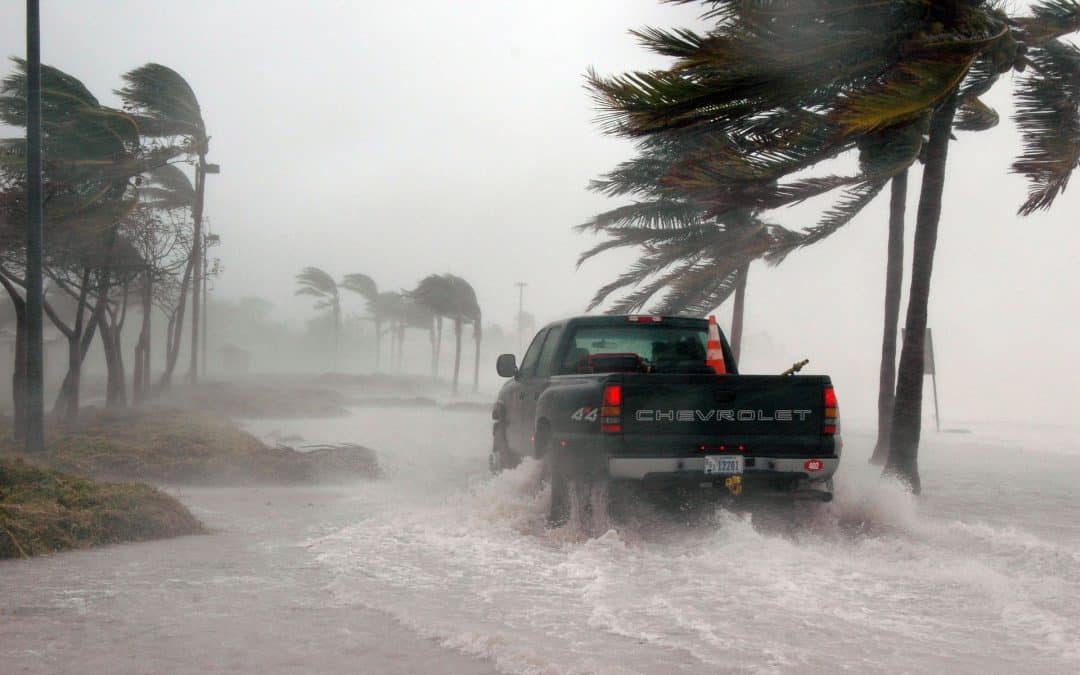A Phil Hall Op-Ed: This past weekend, I saw an interview in DailyMail.com with the media-prominent financial advisor Suze Orman regarding property insurance premiums. Orman complained about the $28,000 quote that her insurer gave on her 2,100-square-foot oceanfront condo in Florida, and she warned that climate change is responsible for rising insurance premiums, which will make homeownership more unaffordable to many Americans.
“Climate change is going to make a big difference in people’s desire to own their own home,” Orman said in her interview. “Look at what’s happening in Southern California. Look at the devastating hurricanes that are coming to places where hurricanes really weren’t so prevalent before. I think people start to get a little frayed, especially with interest rates on mortgages being where they are. Real estate is unpredictable. I never would have thought to advise homebuyers: ‘Oh, you better make sure that you can afford a quadrupling of property insurance in the future.’”
Orman added that in her case, she owned the condo and had the ability not to pay the insurer the quote.
“I’m not paying $28,000 a year when the insurer will probably contest any claim I get anyway. Luckily, I have the money to self-insure,” she said.
It is no secret that property insurance has become much more expensive over the past few years. A recent study by Policygenius found home insurance prices were up by 35% between May 2021 and May 2023 – and insurance premiums increased by an average of 68% in Florida during the same period.
“Given the industry’s ongoing challenges and the threat of climate change, it’s not surprising that home insurance premiums are continuing to rise,” said Pat Howard, a licensed property and casualty insurance expert at Policygenius.
Okay, let’s pause for a moment and re-read what Howard just said, with a new emphasis on what’s driving the problems: “Given the industry’s ongoing challenges and the threat of climate change, it’s not surprising that home insurance premiums are continuing to rise.”
Clearly, Howard contradicted Orman by describing the threat of climate change and by not giving it priority in his analysis. So, what exactly are the “industry’s ongoing challenges”? Let’s focus on Florida, which leads the nation in jacked-up property premiums.
Last September, the Miami Herald investigated the state of property insurance within Florida and found climate change might not be the major factor to blame. Among the problems cited were “bad business practices, including excessive pay for executives, [which] may have also been a factor in the bankruptcy and withdrawals for some insurers in Florida.”
The Herald also pointed out that many Florida households “are packed into some of the most dangerous and hard-to-insure places in the county, like Florida’s coasts.” When you consider the increase in Florida’s inbound migration since the pandemic, the insurers have a much larger population to potentially pay out in the event of hurricane and flooding damage.
Furthermore, the Herald’s coverage also cited Jeff Brandes, a former state senator who observed, “Florida had only 8% of U.S. property claims and 80% of the property litigation in the U.S. You can’t be the most hurricane-prone state and the most litigious and expect low rates. Insurance is set on an annual basis, so while climate change may be an issue, it’s not an issue people see as immediate for insurance purposes. It’s a future risk.”
Of course, higher construction costs to repair residential properties damaged in weather events only adds to the pricing mayhem.
Now, this is not to say that weather events impacting Florida and the southeastern United States have not become more frequent and more violent in recent years. But before Suze Orman or anyone starts to solely blame climate change for jacking up property insurance in the Sunshine State, perhaps they need to step back and see the proverbial bigger picture.
Phil Hall is editor at Weekly Real Estate News. He can be reached at [email protected].



















Suzie neglects to mention, and may not know, the insurance fraud in Florida is a constant. The last few years have been plagued by dishonest homeowner’s, attorneys and roofing contractors, that knew their roofs were shot prior to any wind storm. The homeowner just wanted someone else to pay for their, what should be normal maintenance.
Years prior that that were sinkhole claims, which began the increases. And, the majority of those w
were also fraud or bogus.
Then you had a condo building in south FL collapse and kill several people and displace others.
Florida will always have hurricanes, that’s why I don’t live on the coast, along with the fact I can’t afford to. But, in the last few years, we have been sharing our hurricanes with other parts of the country, with less destruction in Florida. Then you have some older communities that never should have been built, such as Shore Acres in St. Pete. I believe it was developed in the 60s or 70s and has always flooded and continues to do so.
Today’s construction costs are much higher and all that has to be figured into insurance rates.
So, I’m not buying the hysterics of so called “climate change” for any of this. Suzie should educate herself more before she lays the blame.
Weather engineering, just like what was done in San Diego last month, is the primer for people to file lots of claims and cause roofers and attorneys to see opportunities to get business using deceptive practices.
The storm damage is increasing with every storm. The costs to repair or replace is going up faster than inflation. The risk of hitting a naples or any coast town is driving this and it wont get better The same in fire prone areas of california. it is almost impossible to insure these places
Any claims of climate change and increased frequency of storms is bogus. The real science says no such thing, but it is a great excuse to raise rates. There are other things going on. I live in The People’s Republic of California, and here they are blaming increased wild fires on climate change. In reality, the state changed the way they “manage” forests (which are really brush lands) that allow for uncontrolled growth and reduced thinning that adds greatly to any fires. Secondly, the government has many mandates on the utilities that leaves them fewer funds for maintinence and preventative measures, increasing chances for fires to break out. In short, it’s not climate change, but government interference and mandates that have caused more and more devistating fires. I don’t know what the root cause issues in Florida are, but the one thing it is not, is climate change.
I agree with all the comments, especially the ones on the California fires, & the Florida roofing scams. I’ve lived in Florida for 11 years and I know people who have benefited from the Florida scam. My take on this is that some less than honest roofing people found a way to Hoo Doo the Insurance companies. Some would even go door to door touting how they could get an old roof owner a new one through an insurance claim just for the deductible. The end result was some companies stopped insuring in Florida, for others, rates went up, and finally, I believe, a way was found to eliminate most of the scams. Sure, some insurance companies may be a little top heavy, but, for the most part, insurance is an actuarial thing. As the cost of claims go up, so does the insurance premium. Unlike Georgia, that has what I call insurance police, Florida does not. One condo I heard of had a $600 a month increase in insurance premiums! In Georgia, the insurance police, slashed a proposed rate hike substantially. I’ve heard the Florida legislature is looking for a way to help Florida homeowners. Normally, I have little use for government intervention, but in Florida, we say, “Y’all come,” and provide the nation with some of the most popular vacation opportunities in the country. With that we have some of, if not the highest Insurance rates in the country. It would seem that if Floridians are going to provide the country with so many vacation opportunities, it would be OK for the State to help financially in times of storm damage.